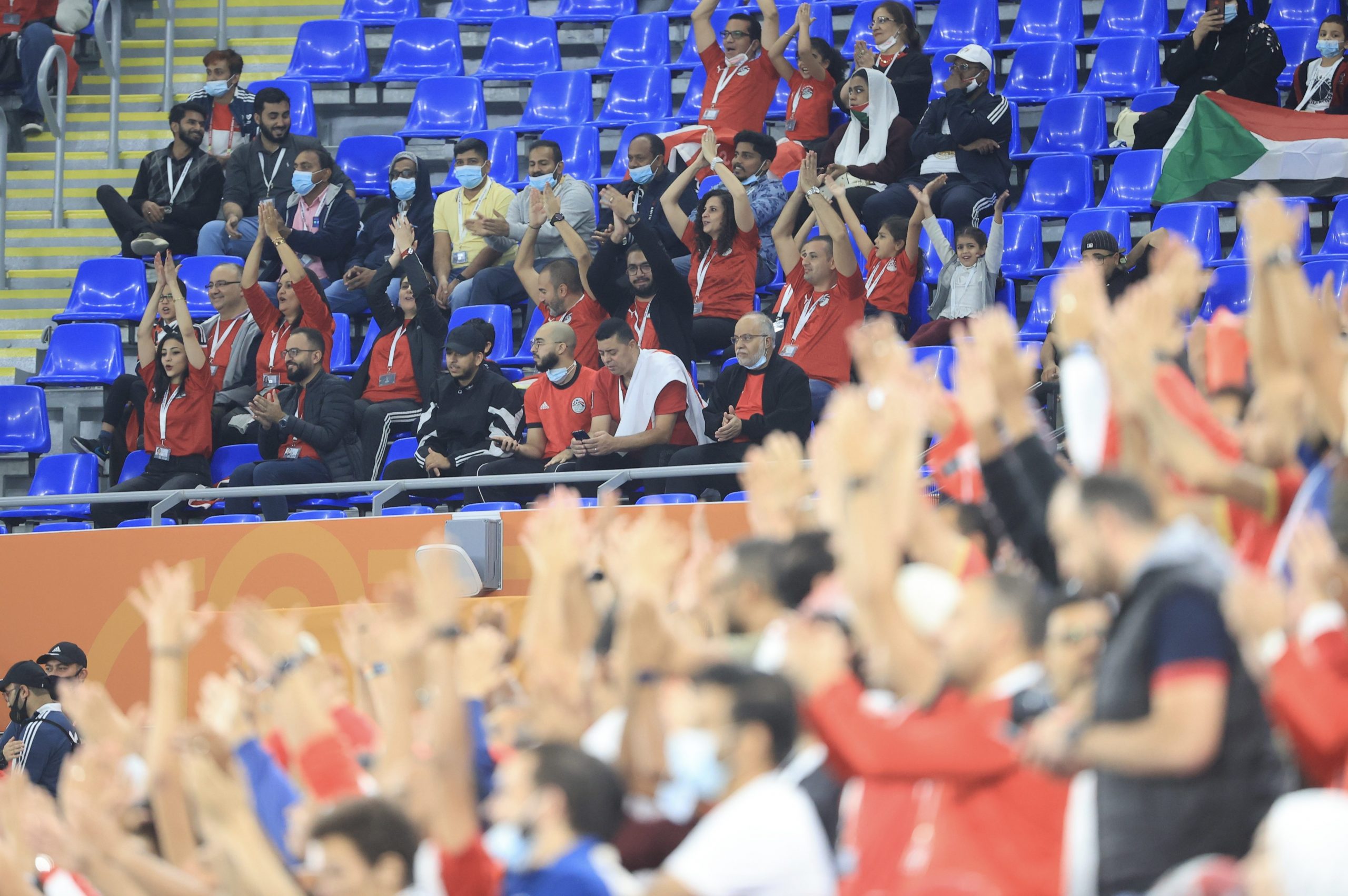Football spirit is in full swing in Qatar! Here are some hits and misses at this FIFA Arab Cup 2021 in Doha.
As the FIFA Arab Cup sets the precedent for Qatar’s World Cup next year, there are many lessons that the Gulf state can learn and implement before hosting the mega-sporting event in 2022.
The 19-day tournament has witnessed 16 teams fighting to take home the gleaming FIFA Arab Cup trophy for the first time – marking a historic moment for all involved in the event.
With a total of four groups of four teams competing in the first round, the tournament has attracted visitors from all over the Arab world. In total, 32 matches will take place during the tournament.
Countries competing in the event include: Qatar, Bahrain, Iraq, Oman, Tunisia, the United Arab Emirates, Syria, Mauritania, Morocco, Saudi Arabia, Jordan, Palestine, Algeria, Egypt, Lebanon, and Sudan.
Here’s what Qatar has nailed in hosting the Arab Cup, and where the Gulf state needs to improve.
Where it went right
Opening ceremony
There have been no recorded cases of violence among fans since the Arab Cup kicked off on November 30.
Side events and activities
From concerts to festivals and other sports events, Qatar has managed to plan an action-packed December with an array of different activities to engage in while the Arab Cup tournament plays out.
International Arab talent will take center stage in Doha at the Qatar Live 2021 series set to be held in December.
Events will take place at the Doha Exhibition & Convention Center and host over eight regionally recognised artists, including Assala and Myriam Fares.
Similarly, popular Yemeni-Emirati singer Balqees and Iraqi artist Saif Nabeel are set to take the stage in Katara this week.
For fellow foodies, the annual QIFF is also open to the public. Located at Al-Bidda Park in the Corniche, the festival hosts a wide variety of food trucks, live cooking shows, masterclasses, and activities for families and kids. Live firework displays are staged at 8pm on Thursdays, Fridays, and Saturdays.
The Qatar Live series will also host Hot Wheels Monster Truck Live, providing spectators with the opportunity to see real-life versions of the famous Hot Wheels monster trucks toys.
Public transport
Public transport proved to be a success during the Arab Cup, with many making use of Doha’s Metro system to navigate to and from different matches and events.
Signs were placed across the capital with directions to different stadiums, with maps showing which train lines can be taken to different venues.
On match days, buses operate four hours ahead of kick off to allow for plenty of time to reach the venue.
Lessons to learn
Road closures
However, among the changes made to infrastructure for the Arab Cup were road changes, notably the Corniche road closing. The major road was closed for over a week to sustain some of the events organised during the Arab Cup.
While necessary, this left many unhappy as it caused a major hindrance for many trying to get to work in West Bay, or those carrying out their day-to-day activities in the area.
Many wondered if Qatar was able to host major events following the disorganisation and heavy traffic caused by the road closures.
The bright side of the closures was that over 100,000 passengers used the Doha Metro service across seven Corniche area stations during temporary closures that affected the main road over the past week.
Covid-19
Doha has been a bit unlucky when it comes to health and safety. Covid-19 cases have been consistent over the past month, but have slowly risen since the drop in cases in October.
Two football players were confirmed to be Covid-19 positive last week while playing in Qatar for the FIFA Arab Cup 2021 tournament.
Pre-match medical examinations on Tuesday showed that Jordan’s Anas Al Awdat was found to be infected with the novel coronavirus, dismissing him from upcoming matches.
Hours later, reports confirmed a second Covid-19 case was recorded from Tunisia’s football team member Hamza Mathlouthi.
Organisers of the tournament have required those under 12 years of age to show evidence of a negative PCR test to attend the matches.
Some Primary Health Care Centres (PHCC) were designated for this nature of testing. However, little clarity has been provided on this, with some doctors refusing to test spectators, saying that the centre was designated for specific stadiums only.
Fan IDs
Fans faced many obstacles with applying and picking up their mandatory Fan IDs from designated booths across the capital.
The IDs were needed for entry to every Arab Cup match, but proved to be a messy process for spectators.
A limited number of pick-up points, together with thousands of applications, left fans queuing for hours while awaiting the printing of their IDs.
Fan IDs for the Arab Cup have since been cancelled following the magnitude of complaints.
The Supreme Committee for Delivery and Legacy (SC) announced in a press release that the first phase of the project has been completed, which means spectators can attend the upcoming matches without the need to apply for a fan ID.
Fans will now only need to show a ticket to enter a stadium, along with a gold frame EHTERAZ as proof of vaccination (or proof of a negative test for children aged 12 and under). Fans who already have their Fan IDs still have access to public transport free of charge.
Food
Fans in Qatar also took to social media to complain about food offered at Arab Cup matches. One viral video aimed to illustrate that food and snacks being sold at stadiums were very expensive.
While the QIFF has provided an array of world class food, complaints rose due to the quality of the food, with many saying it was very poor, bland and overpriced.
Follow Doha News on Twitter, Instagram, Facebook and Youtube







